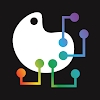MONAI, which stands for Medical Open Network for AI, is an open-source framework specifically designed for medical imaging applications in the domain of artificial intelligence and deep learning. Developed by Project MONAI, a collaboration between NVIDIA and healthcare partners, it aims to accelerate the development, training, and deployment of high-quality medical imaging workflows.
Functions:
Data Preprocessing: MONAI provides tools for efficient data handling, including normalization, augmentation, and annotation, ensuring data is in a format suitable for deep learning models.
Model Training: It supports training of various deep learning architectures tailored for medical imaging tasks like segmentation, classification, detection, and registration.
Model Evaluation: Offers mechanisms to validate model performance using standardized evaluation metrics specific to medical imaging.
Inference & Deployment: Facilitates the deployment of trained models into clinical workflows or research environments.
Characteristics:
Modular and Extensible: MONAI is built on top of PyTorch, making it modular and easily extendable with custom components.
Domain-Aware: Specifically developed for medical imaging, it incorporates domain-specific best practices and transforms.
Reproducibility: Emphasizes code and experiment reproducibility, crucial in medical research.
Interoperability: Supports common medical image formats and integrates well with DICOM, NifTI, and other standards.
Highlights:
High-Performance Computing: Utilizes NVIDIA's GPU acceleration for efficient training and inference, enabling large-scale medical imaging studies.
Curated Collections: Provides pre-trained models and pipelines, allowing researchers to start quickly and build upon existing work.
Adherence to Best Practices: Encourages adherence to regulatory and ethical guidelines in medical AI development.
Community-Driven: Backed by an active community of developers and researchers, fostering collaboration and continuous improvement.
Advantages:
Accelerated Research: Reduces time-to-insight by providing ready-to-use components, allowing researchers to focus on innovation rather than infrastructure setup.
Standardization: Promotes standardization in medical imaging AI, which can lead to more consistent and comparable research outcomes.
Flexibility: Its modular design allows easy swapping of components, enabling customization for specific use cases or research questions.
Quality & Reliability: Rigorously tested and validated by a community of experts, ensuring high-quality, reliable results in medical imaging applications.
Scalability: Designed to handle datasets of varying sizes, from small research projects to large multi-institutional studies, and can be deployed across diverse hardware configurations























